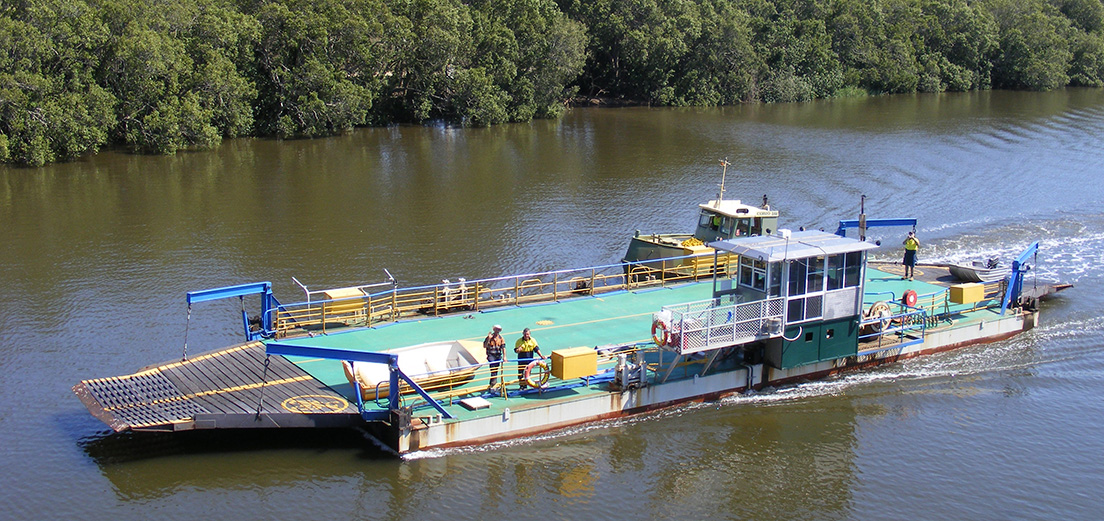UOW launches Surf Flex Lab Fund to continue pioneering research in surf engineering
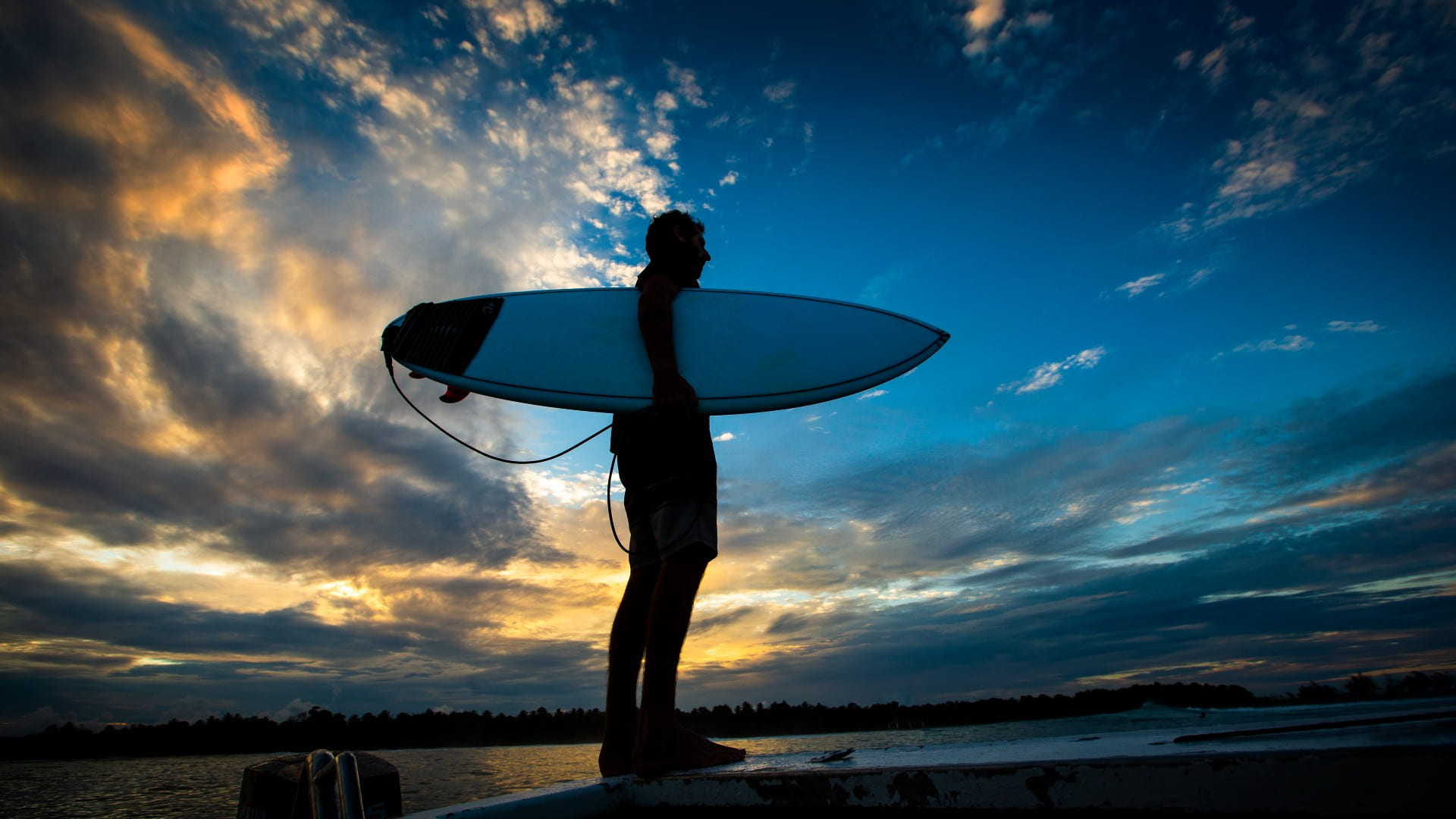
The ocean is Professor Marc in het Panhuis’s laboratory, the place where he dreams up new ideas and puts his research to the test. It sounds like fun but it’s all in the name of science, and the implications for the way surfers interact with the water, for the sustainability of the sport and of the ocean, are serious.
has been the driving force behind the University of Wollongong’s Surf Flex Lab, which progresses surf and waters sports technology to maximise performance, sustainability, and enjoyment of water sports. Run by surfers, for surfers, the Surf Flex Lab captures the intersection between sport and science, focusing on performance, materials, and sustainability.
What began as a project examining how 3D-printing fins could improve a surfer’s performance and experience in the water has grown into a comprehensive research laboratory that is foremost in the world in the field of surf engineering. Led by Professor in het Panhuis, from the School of Chemistry and Molecular Bioscience, the Surf Flex Lab encompasses experts from the fields of surfing, engineering and science, bringing together multidisciplinary capabilities to create a state-of-the-art research lab that is changing how we view and approach the sport of surfing.
“We are pursuing knowledge about surf engineering in a way that has never been done before. We are progressing what is possible through technology and innovation,” Professor in het Panhuis said.
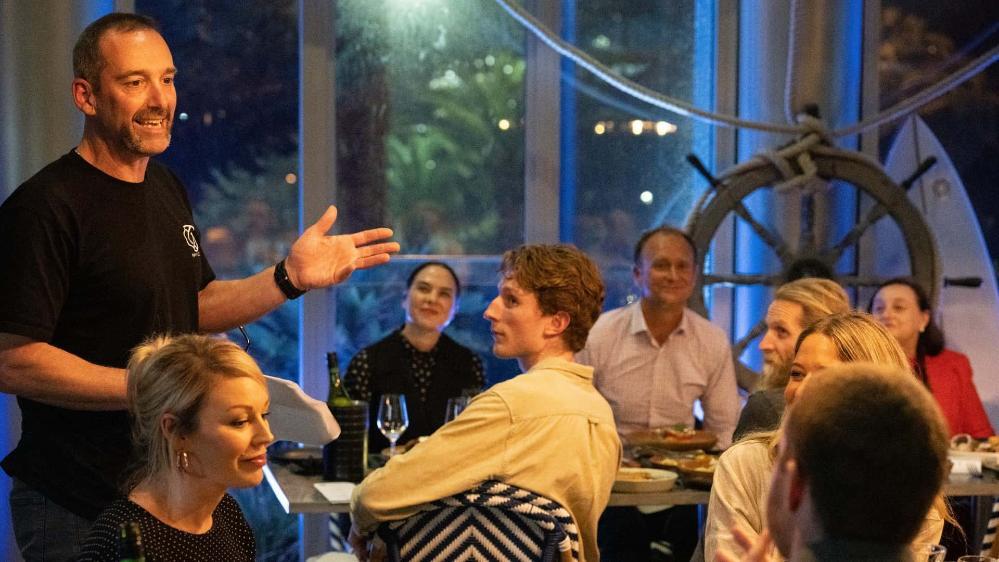
Professor Marc in het Panhuis at the Surfing as a Science event in Wollongong.
Last week (Wednesday 28 September), the Surf Flex Lab held a Surfing as a Science event in Wollongong, with the aim of introducing members of the wider surfing community to their work and encouraging the local surfing community to consider how sustainability dovetails with the sport that is so fundamental to the Australian identity.
Representatives from organisations, including Wave Changer and Surf Rider Foundation Australia, as well as surfboard shapers and manufacturers, attended the Surfing as a Science discussion, reflecting the need for a whole community approach to the issues of sustainability in surfing.
During the event, Professor in het Panhuis launched the Surf Flex Lab Fund, which will enable donors to support the world of UOW’s Surf Engineering Research team and fund scholarships for Honours and PhD students to continue further research in the field.
“Surfing is a sport that makes you think about being at one with nature, but the reality is, there are a lot of issues with sustainability. These issues are evident across the entire lifecycle of the surfboard.
“It is the materials that are used, how much wastage there is in shaping and creating the boards. Currently there is no way of recycling old surfboards, so when they break or outlive their use, they often end up in landfill. And if surfboards break in the water, they can release foam or microplastics that are harmful to the ocean.
“The sustainability issues also extend to the global footprint, as many surfboard companies make their boards in countries like Thailand and China, and then ship those to Australia.”
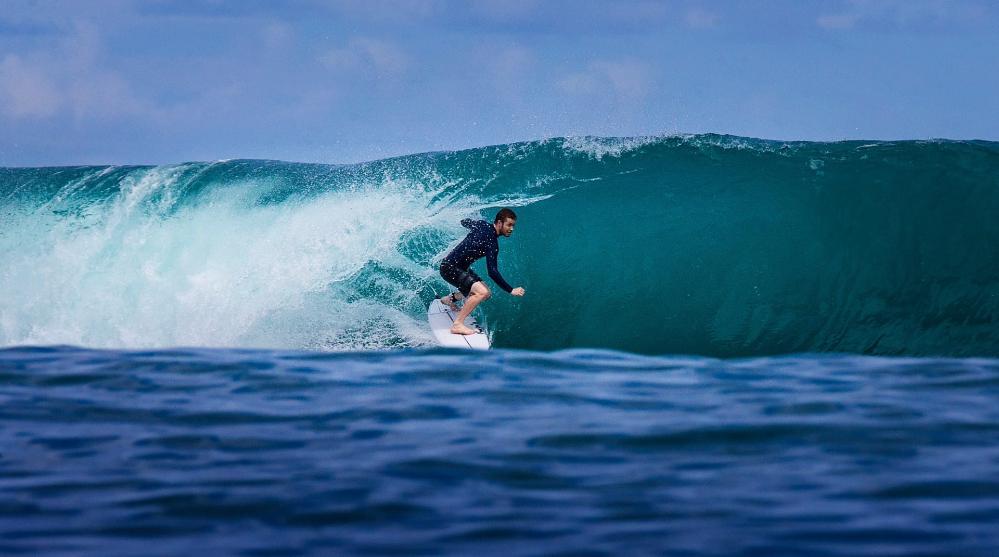
A member of UOW’s surfing team conducts research in the Mentawai Islands in Indonesia.
Professor in het Panhuis said many in the surfing community are aware of the need to imprint greater sustainability into surfing, but there has always been tension between performance and the need to care for the environment. The two do not necessarily go hand in hand.
“Boards made from more sustainable materials, such as wood, are fun to ride, but do not deliver the performance many surfers expect. And they’re usually heavier than comparable products,” Professor in het Panhuis said.
He is aiming to bridge the gap between the two concepts, using the data gained through the team’s research to create and craft surfboards that are able to perform while also being better for the environment.
“How are we going to do that? That is the journey,” Professor in het Panhuis said. “But we are looking at investigating the lifecycle of current manufacturing approaches, at new materials with improved sustainability, and taking a totally different approach to materials and manufacturing.”
Professor Patricia M. Davidson, UOW Vice-Chancellor, attended the launch of the Surf Flex Lab Fund, and said recognising the science involved in surfing was fundamental to driving pioneering research in the field.
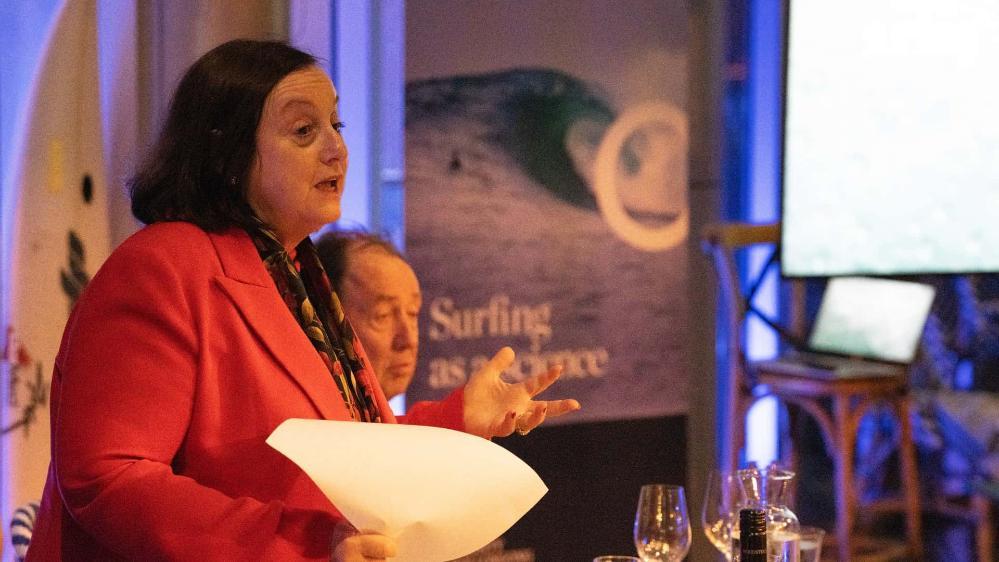
UOW Vice-Chancellor Professor Patricia M. Davidson speaks at the Surfing as a Science event.
“We are surrounded by breathtaking coastline and surfing is ingrained in our psyche, as part of our national identity. But it’s often seen just as a leisurely pastime. It is time we acknowledge the science that underpins surfing, and that is where Professor in het Panhuis and his team of researchers come in.
“The research they are undertaking in this field is fascinating and trailblazing, but it’s also vital to the health of our oceans.
“UOW takes its commitment to sustainability very seriously. We only have one planet and the best legacy each of us can leave to our children and grandchildren is a world that is liveable and sustainable.
“Our goal is to be Australia’s leading surfing-research University, with our home here on the surf-rich South Coast and with our world-leading team of researchers. I am thrilled to launch the Surf Flex Lab Fund and encourage the community to support the work of the Surf Flex Lab.”






